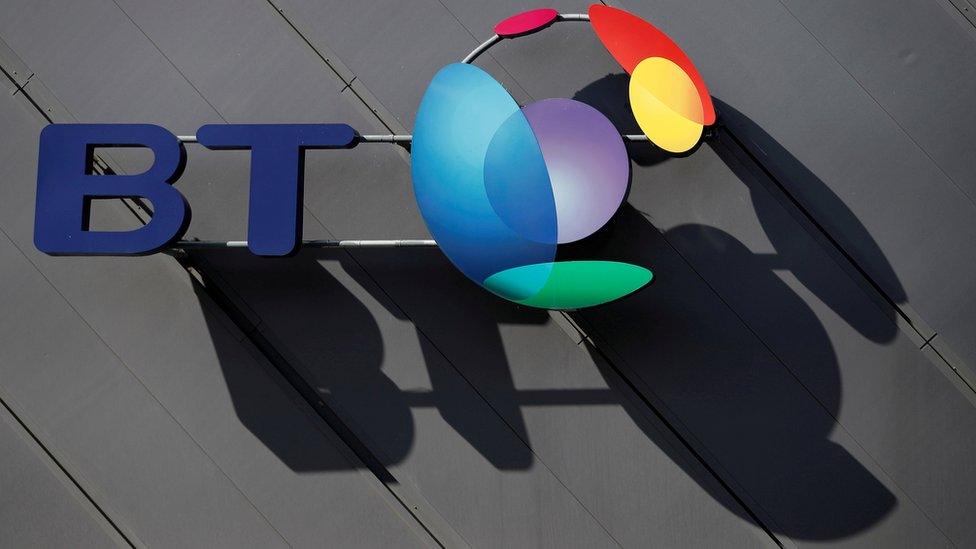Transfer test: Academic selection 'traumatic', new research claims
- Published
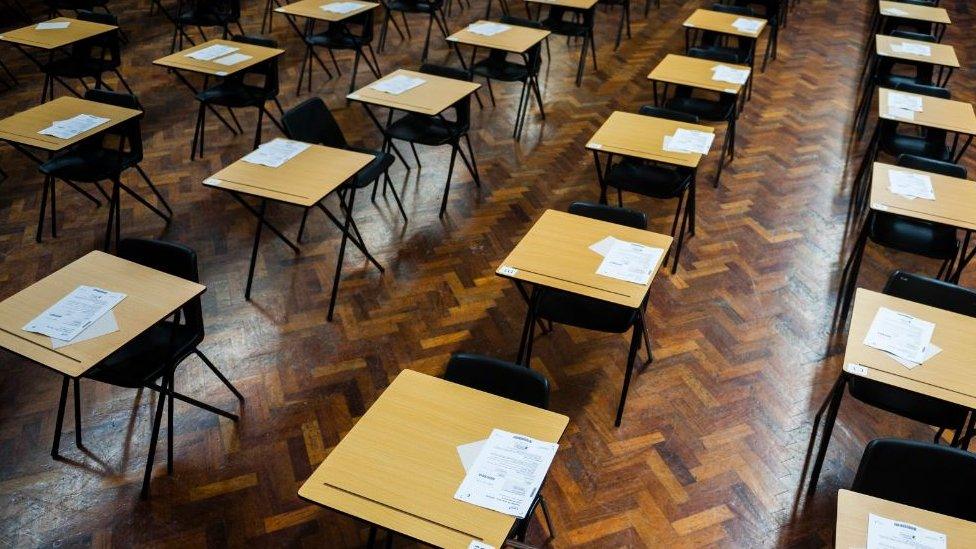
Academic selection "is traumatic for many children, creating damage which often endures into adulthood".
That is according to a briefing paper from Ulster University's (UU) Unesco Education Centre.
The paper argues that academic selection benefits "a few (generally already privileged) pupils while damaging the life-chances of a large proportion of the school population".
Most NI grammar schools use tests run by the AQE and PPTC to select pupils.
However, the tests were cancelled in 2021 due to disruption caused by the Covid pandemic.
One Belfast grammar school, St Mary's Christian Brothers, recently said it would not use academic selection to admit pupils in 2022.
Researchers from the Unesco Centre of Education at UU have produced a number of briefing papers which examine aspects of Northern Ireland's education system.
They trace the origins of the current form of academic selection back to the Northern Ireland Education Act of 1947.
Although a state-run 11+ test was scrapped in 2008, external, grammar schools have since used tests separate tests run by the AQE and PPTC to select pupils.
The researchers said that those in favour of academic selection often argue that it promotes social mobility, allowing academically gifted children from relatively disadvantaged backgrounds to progress in education.
But the briefing paper argues that is not the case.
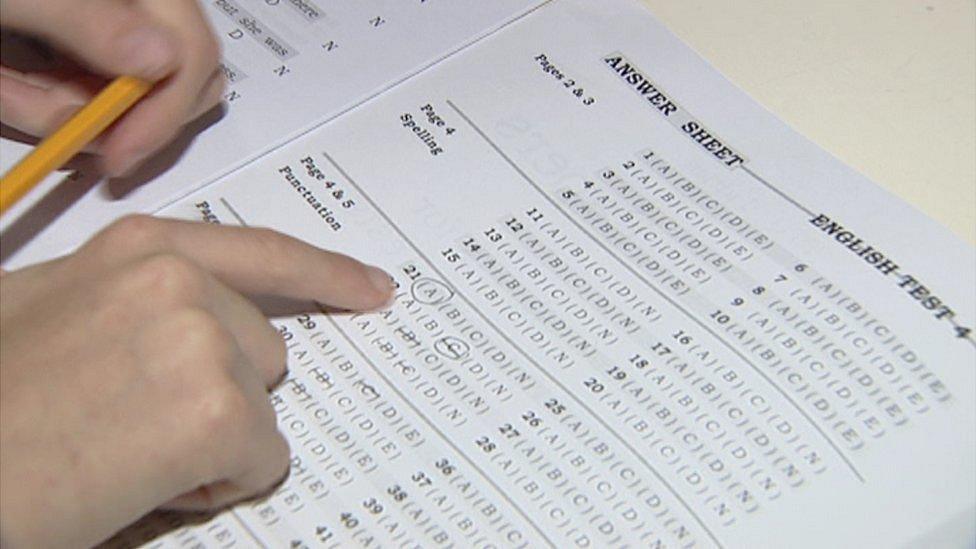
"Unfortunately for those who support grammar schools, there would seem to be little evidence that social mobility is increased by academic selection and there is considerable evidence that it generally does not happen," the briefing paper said.
Its authors point out that in non-selective schools, for instance, about 37% of pupils are entitled to free school meals compared to about 13% of pupils in grammars.
"A proportion of children sitting the selection tests will have had private tutoring," the UU researchers said.
"It has been shown that children who have that experience perform better in the transfer test while the lack of private tuition has a negative impact on access to a grammar school."
The briefing paper also said that there was evidence that "failing to gain access to a grammar school has a negative impact on self-esteem".
The researchers do admit that the arguments they use against academic selection are not new.
But they said the evidence indicates that "the current arrangements for school transfer at age 11 contribute to the social and financial costs of a stressful process that serves to benefit a few (generally already privileged) pupils while damaging the life-chances of a large proportion of the school population."
'Ripe for change'
The paper continues: "It is traumatic for many children, creating damage which often endures into adulthood.
"It is hard to escape the observation that many of the political class responsible for making decisions on the future of selection, will themselves be the products of the same grammar school system that they seek to defend, and their children in all likelihood also attend such schools."
"Time is ripe for change," the briefing paper concluded.
"Stresses on the economy after Covid-19, including the almost inevitable recession which will follow, particularly impacting on Northern Ireland, mean that society cannot continue to subsidise duplication and segregation of schools, whether that be by community background, social class or apparent academic ability.
"There are strong economic reasons for changing a flawed system, and the social and moral arguments for fundamental transformation are even stronger."
While the research from the Unesco Centre for Education is independent, its publication was partly funded by the Integrated Fund for Education.
Related topics
- Published5 November 2020
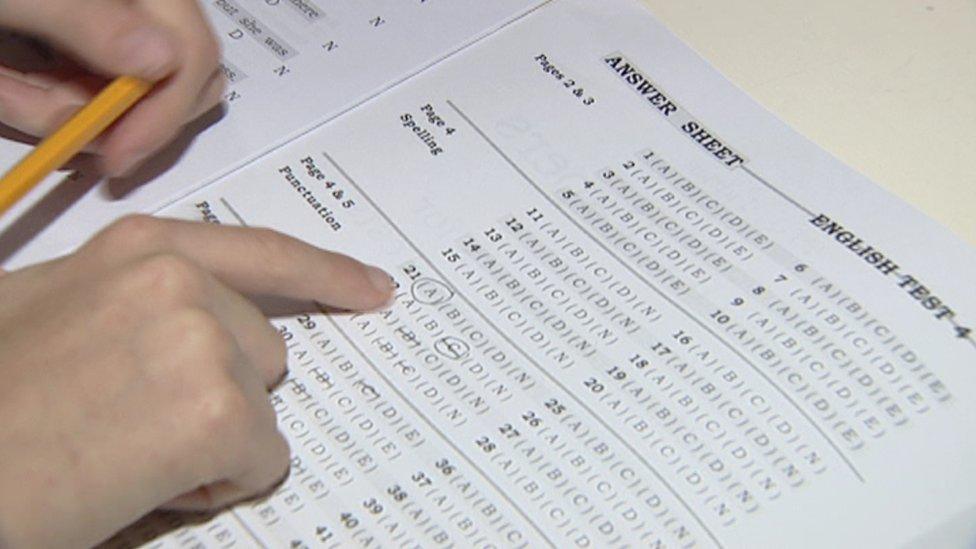
- Published21 January 2021
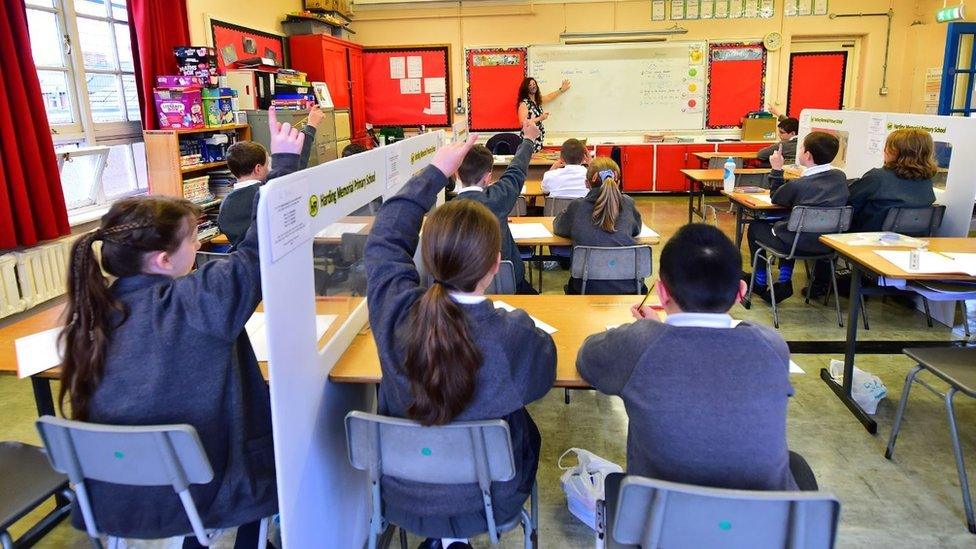
- Published15 January 2021
